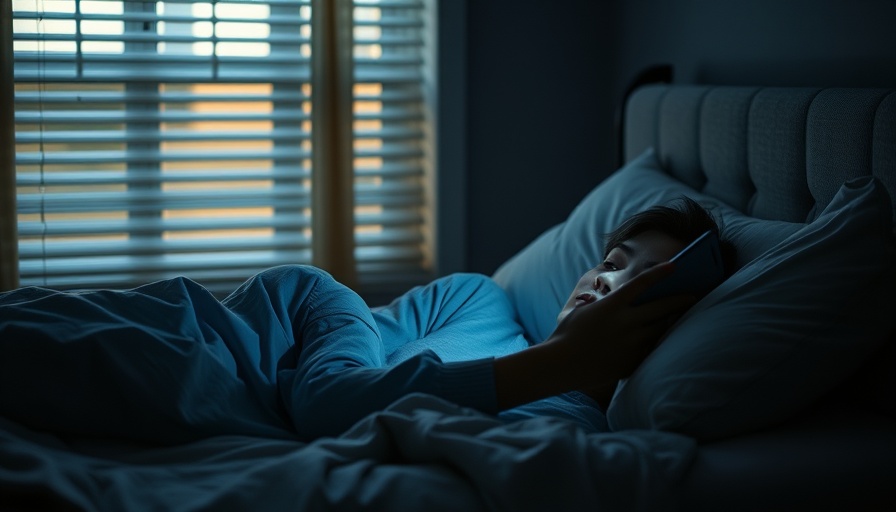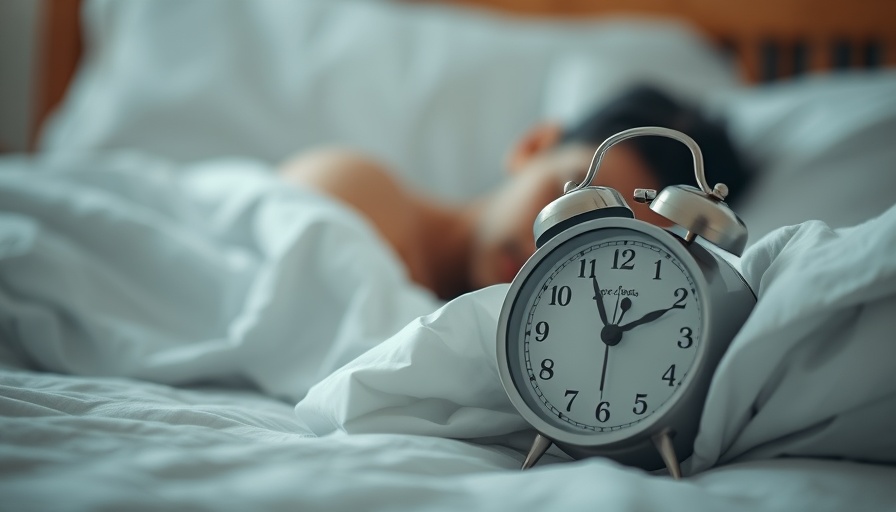
Understanding the Link Between Screen Time and Sleep Disruption
In today's digital age, many young adults are accustomed to using screens right before bed. A recent study conducted in Norway has unveiled alarming statistics regarding the impact of screen usage on sleep quality. Findings indicate that just one hour of screen time after bedtime can increase the risk of insomnia by a staggering 59%. This revelation serves as a critical reminder of the importance of establishing healthy sleep habits.
The Hidden Costs of Screen Time
According to Dr. Gunnhild Johnsen Hjetland, the lead author of the study published in Frontiers in Psychiatry, the type of activity on the screen matters less than the duration of screen exposure itself. The study surveyed 45,202 participants aged 18 to 28, focusing on how their late-night screen habits related to their sleep patterns. Additionally, the research highlighted that using screens after bed reduces sleep time by an average of 24 minutes.
In today's fast-paced world, prioritizing sleep can be difficult, but understanding the hidden costs that screens impose on our health is crucial. Engaging in screen activities can replace necessary sleep time and delay the onset of restful sleep, ultimately leading to mental and physical health issues like anxiety and decreased concentration.
Why Late-Night Screen Use Matters
Screens can impact sleep in several ways. Notifications can cause disruptions, while the light emitted by screens can hinder the body's ability to produce melatonin—an essential hormone for regulating sleep. Furthermore, activities like gaming or scrolling through social media can be stimulating, making it challenging for our minds to switch off and prepare for sleep.
Empowering Yourself to Improve Sleep Quality
Improving sleep hygiene is vital, especially in a society that increasingly relies on technology. Here are some actionable steps for better sleep:
- Set a Digital Curfew: Establish a specific time when you will stop using screens before bed, ideally at least an hour prior.
- Create a Relaxation Routine: Engage in a calming pre-sleep ritual, such as reading a book or practicing mindfulness meditation.
- Introduce a Sleep Environment: Keep your bedroom dark and cool to promote optimal sleep conditions.
Real-life Anecdotes: How Others Have Coped
Many individuals struggling with sleep issues have found success in reducing late-night screen time. Sarah, a 25-year-old student, shared that adopting a digital curfew transformed her sleep health. “I used to fall asleep with my phone in my hand, and it caused me so much anxiety,” she admits. “Now, I put my phone on the other side of the room and read a book instead. It’s made such a difference. I feel more rested and focused during the day.”
Sarah's experience is not unique. Numerous young adults are realizing the importance of prioritizing sleep over late-night screen use. In her case, the benefits of improved energy levels and a calmer mind outweigh the temporary satisfaction of scrolling through social media an hour later.
Future Insights on Sleep and Technology
As technology continues to evolve, it is essential to anticipate the potential long-term effects of screen usage on society's sleep patterns. With increased awareness and intentional behavioral shifts, individuals can reclaim their sleep, foster healthier sleep habits, and ultimately enhance their overall well-being.
A more conscious approach to screen time, particularly in the context of sleep, holds the potential to significantly impact mental health, academic success, and our social connections.
Take Charge of Your Sleep Today
Sleeping well is fundamental to living a healthy life. Now is the time to act! Start implementing the strategies mentioned above, and consider reflecting on your screen habits. Reassessing how you interact with your screens before bedtime could unlock better rest and restore your energy potentially. Your health and happiness deserve it!
 Add Row
Add Row  Add
Add 




Write A Comment